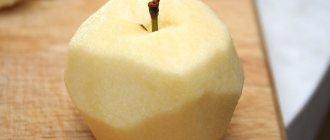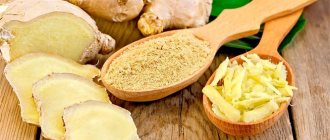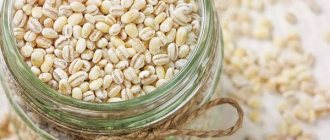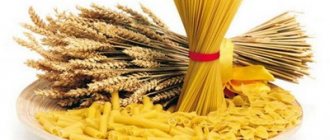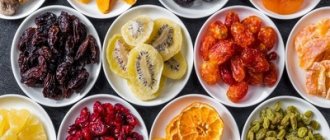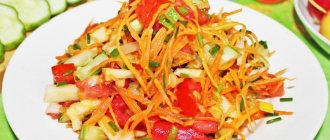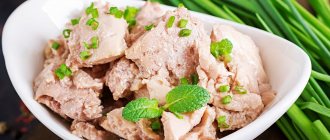Gastritis is an inflammatory disease that affects the gastric mucosa. The disease provokes disturbances in organ motility and secretion, and also leads to atrophy of the epithelium and replacement of healthy cells with scar tissue. In acute form, gastritis is accompanied by the following symptoms:
- Heartburn.
- Heaviness in the stomach. Mainly at the top.
- Decreased appetite.
- Belching.
- Having an unpleasant taste in the mouth.
- Stool disorders.
Unpleasant sensations occur almost immediately after eating. Some patients experience pain and fever up to 37-37.5 degrees. Proper nutrition plays a huge role in the treatment of gastritis. To alleviate the patient’s condition and normalize the functioning of the gastrointestinal tract, doctors recommend adhering to a special diet.
About the disease
Gastritis is inflammation of the stomach walls.
Gastritis is inflammation of the stomach walls. Its varieties, as well as the causes of its occurrence, are quite diverse, and in each specific case different treatment tactics and a special diet are used.
There is an acute and chronic form of gastritis. Symptoms of acute gastritis include acute pain in the epigastric region, nausea, vomiting, flatulence and heartburn.
Chronic gastritis can exist for many years without causing significant symptoms. The patient may occasionally experience minor pain or digestive disorders.
There are also catarrhal, allergic, autoimmune, phlegmonous, and erosive forms of gastritis. Depending on the production of gastric juice, gastritis is distinguished with high and low acidity.
Rules of use
The use of tea and herbal infusions is indicated for various pathologies, including gastritis. The type of drink, its daily dose and optimal temperature in each case are determined by the attending physician, taking into account the form of the disease, the individual characteristics of the patient’s body, etc.
With erosive form
Erosive gastritis is characterized by alternating exacerbations, accompanied by an inflammatory process, with remission.
Dietary nutrition accelerates the onset of relief and prolongs remission. In case of erosion, it is necessary to eat foods that are not capable of increasing the secretion of gastric juice. It is worth excluding coffee and strong black tea. Collections with lemon balm, chamomile, and St. John's wort will be useful. For erosive-hemorrhagic inflammation, drink a decoction of oak bark.
Rules for drinking drinks for gastric erosion:
- The daily fluid intake for an adult patient is 1.5 liters.
- Unsaturated green and black teas and medicinal infusions are allowed for consumption.
- The drink should be drunk warm.
If you have an erosive form, it is recommended to drink 1.5 liters of tea.
During exacerbation of the disease
The acute stage of the disease requires adherence to a special diet. With the help of food and drinks, it is necessary to try to improve the condition of the gastrointestinal tract: eliminate irritation, inflammatory processes, direct the body’s forces to accelerate the regeneration of damaged tissues, strengthen barrier functions.
Ivan tea copes well with these tasks, as well as infusions with the addition of medicinal herbs, roots, inflorescences, and fruits.
Collection No. 1:
- calamus rhizome;
- caraway;
- peppermint;
- Asian yarrow;
- swamp cudweed;
- bird knotweed;
- plantain;
- St. John's wort;
- centaury.
When the disease worsens, herbal infusions are used.
Collection No. 2:
- celandine;
- chamomile;
- St. John's wort;
- yarrow.
With low acidity
Atrophic gastritis is an inflammatory process accompanied by a decrease in the concentration of gastric juice, the death of secretory cells, and deterioration in the absorption of nutrients. The disease can provoke disruption of the functioning of other internal organs and systems.
For low acidity, it is recommended to drink weak, lukewarm herbal tea, chamomile, or rosehip decoction.
If the disease is accompanied by severe pain, black tea is excluded from the diet.
For chronic gastritis
The development of the chronic form of the disease is facilitated by non-compliance with diet and drinking regime. To help the body rehabilitate, you can take decoctions, the action of the components of which is aimed at relieving inflammation, pain, healing and restoration of the gastric mucosa. For chronic gastritis, black tea is best replaced with green, anise, Ivan tea or a healing decoction with the following ingredients:
- peppermint;
- plantain;
- yarrow;
- cumin;
- St. John's wort;
- swamp cudweed.
Peppermint prevents the development of the chronic form.
Chronic gastritis is dangerous due to complications - the formation of ulcers, erosions, and dyspepsia. The disease is accompanied by flatulence, cramps, and attacks of nausea. Drinking Ivan tea will help protect the stomach from new pathologies, eliminate unpleasant symptoms, and accelerate the regeneration of damaged tissues. Anise decoction will enhance the body's ability to resist bacteria.
In order for the drink to retain its properties in full, it is prepared in a special way:
- 3 tbsp. l. dry collection pour 1 tbsp. hot boiled water, but not boiling water.
- The broth is infused for 30 minutes, and then left in a water bath for another 60 minutes.
- The product is divided into 5 doses and drunk throughout the day.
- Each dose before use is diluted with 1 tbsp. warm water.
Basic principles of nutrition for gastritis
If you eat incorrectly, gastritis can cause a stomach ulcer.
Nutrition for gastrointestinal diseases is designed to minimize the manifestations of the disease, help medications show their greatest effectiveness, and provide a person with the necessary amount of energy.
If the food components of a person with gastritis are not balanced in terms of the amount of fats, proteins and carbohydrates, the disease will develop further and complications will arise (stomach ulcers, precancerous conditions). Basic principles of nutrition for patients with gastritis:
- The temperature of the food should not be too cold or too hot; optimal values are from 20 to 50? C.
- Meals are provided to the patient regularly, at strictly defined hours.
- The daily amount of food is divided into several fractional meals (5-6 times a day), small in amount of food.
- For gastritis with high acidity, foods that stimulate the production of already excess acid are excluded.
- For gastritis with low acidity, the menu includes foods that stimulate the production of hydrochloric acid and enhance digestion.
- If there are concomitant diseases that also require dietary restrictions, the necessary amendments are made to the diet of a patient with gastritis.
List of approved products
Despite the impressive restrictions in the diet, the patient’s nutrition must be complete. To do this, the following is introduced into his diet:
- Water soups with the addition of cereals: semolina, rice, oatmeal.
- Soufflé or puree made from lean boiled meat, such as turkey, rabbit or chicken.
- Low-fat fish varieties are also available in the form of puree or soufflé.
- Porridge made from rice, buckwheat or oatmeal, boiled in water and ground. You can add a little butter to the porridge for taste.
- Sweet juices diluted with water, weak teas, fruit drinks. You can also consume honey in small quantities.
You can drink milk, low-fat cream, and cook omelettes. However, you should eat no more than three eggs per day. To ensure that food is well digested and does not put unnecessary stress on the mucous membrane, the daily portion is divided into 6-7 doses.
Nutrition for gastritis with low acidity
Fermented milk products are perfect for gastritis with low acidity.
With this type of gastritis, food is not completely digested because there are not enough digestive enzymes and insufficient hydrochloric acid is produced.
Products on such a diet should stimulate the production of gastric juice. The food receptors that trigger this mechanism are affected by the following foods and dishes:
- strong and rich broths and soups,
- sweet and sour fruits, citrus fruits,
- pickles and pickled vegetables,
- fermented milk drinks (kumys, ayran, kefir),
- sour fruit juices,
- sour non-carbonated mineral waters.
To stimulate the release of enzymes, chew food thoroughly.
Tea mushroom
Mushroom infusion can be used with low acidity. The product, which is produced during the activity of beneficial fungi, has an antibacterial effect. It contains unique bacteria that help heal wounds, cracks and ulcers. Prepare the mushroom infusion as follows:
- take a prepared mushroom, which can be bought at a pharmacy or specialized place;
- brew 1 liter of black tea leaves;
- add 60 g of sugar (about 3 tbsp) and pour in the mushroom;
- leave for 4 days at room temperature.
The infusion will bring maximum benefit if you drink it on the 7th day. If you replace half the sugar with honey, the benefits of the product will increase. It is important to keep the drink in a place protected from direct sunlight.
Drinks and hydration
At the first signs of gastritis, you need to refuse food for the first day.
At the first signs of gastritis, it is better not to eat anything for the first day. But it would be wrong to limit the drinking of a patient with gastritis.
It is recommended to drink water or still mineral water. Chilled, weak tea is also suitable. Subsequently, in case of increased acidity, you need to drink water 15-20 minutes before eating.
It is impossible to manage a dietary diet without dairy products. One of the valuable drinks is kefir, which contains amino acids and trace elements.
Lactose, which has a beneficial effect on the digestive system and nervous system, and a low milk fat content, make kefir a drink recommended for consumption before bed or during dinner.
For gastritis, it is better to drink milk, especially homemade milk, in a diluted form; it is better to add it to tea. The undoubted benefit and first place among dairy products useful for gastritis is goat's milk. It is recommended to neutralize too much hydrochloric acid, to heal defects in the mucous membrane, and against gastritis symptoms such as bloating or flatulence.
What types of tea can you drink?
Only a doctor can choose the right herbal tea or herbal mixture. Some drinks are allowed and beneficial for the body, others are useful only in small quantities, and others can aggravate an existing disease.
Green
A warm, properly prepared drink has the following beneficial properties:
- reduces the risk of gastritis recurrence;
- stimulates regenerative processes in damaged tissues of the digestive tract;
- reduces inflammation;
- relieves pain;
- speeds up metabolism;
- eliminates bloating;
- promotes normal absorption of nutrients.
Green tea speeds up metabolism and relieves pain.
Green tea leaves for gastritis must be prepared in a special way, and drinking tea in the traditional sense is best postponed until the period of remission.
Cooking method:
- 3 tbsp. l. raw materials are brewed with hot boiled water.
- After 30 minutes of infusion, the drink is simmered in a water bath for 1 hour.
- Tea is consumed warm, 2 tbsp. l. at intervals of 2 hours.
Black
Black tea is not recommended for consumption during periods of exacerbation of one or another form of gastritis, as this can provoke increased gastric secretion and inflammation. During the period of remission, the drink should be consumed moderately, in low concentration. Before taking it, the temperature must be brought to a comfortable temperature. It is better to dilute the drink with a small amount of honey and skim milk. If the acidity is low, brew a slice of lemon in the drink.
Blooming Sally
Rich in beneficial components, Ivan tea has an analgesic, antispasmodic, anti-inflammatory, antibacterial, healing effect, and is especially useful for consumption after meals. The drink is not recommended for any exacerbations, as it stimulates the production of hydrochloric acid. And this can lead to pain in the stomach, belching, and heartburn.
Ivan tea has an anti-inflammatory and healing effect.
Ivan tea, consumed during remission, helps protect the digestive organs from the formation of erosions and ulcers, and stimulates active tissue renewal.
Mint
Peppermint is most useful for that form of gastritis, which is characterized by excessive formation of gastric juice and increased acidity.
A decoction based on this valuable plant relieves inflammation, eliminates heartburn, and disinfects the gastric mucosa.
Hibiscus
Hibiscus is a drink made from hibiscus petals, with a rich aroma and color, and a sour taste. Due to its high content of malic, citric, tartaric and other acids, this tea is contraindicated for gastritis, especially with increased secretion and peptic ulcers, as it can cause even greater harm to the gastrointestinal tract.
Ginger
Tea with ginger treats gastrointestinal disorders and is useful for complex and advanced forms of gastritis, including acid reflux. The drink is consumed in the dosage and concentration recommended by the doctor. Ginger tea improves well-being due to its powerful antibacterial effect. However, an overdose of the drink can lead to increased stomach irritation and exacerbation of pathology.
Ginger tea treats gastritis and gastrointestinal disorders.
Anisic
An anise-based decoction has an antiseptic, analgesic effect that stabilizes the general condition of a patient with gastritis. Including the drink in the daily diet helps reduce inflammation, restore the gastric mucosa, and saturate the body with useful microelements. In addition, the components of anise tea fight the cause of the disease - Helicobacter pylori bacteria.
Koporsky
Same as Ivan-tea.
